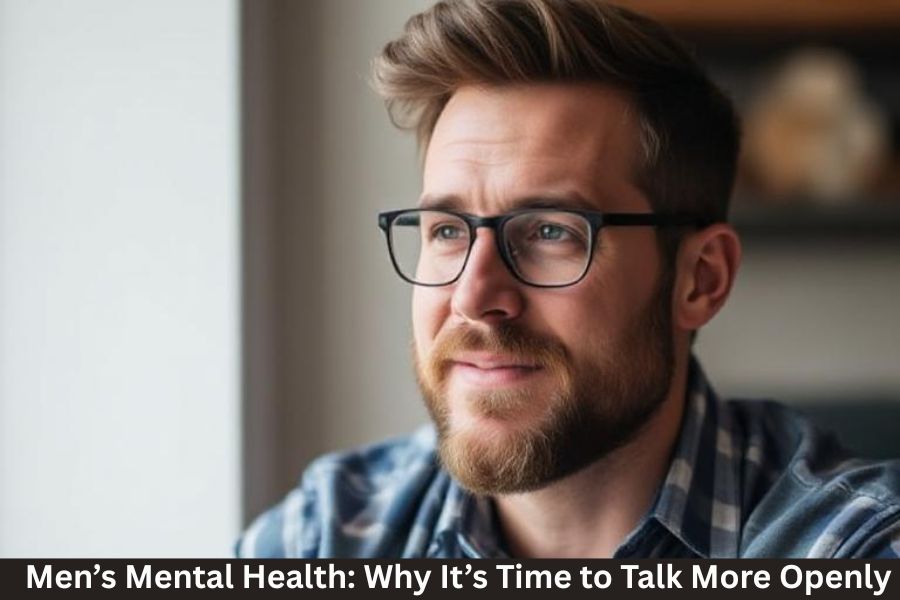For generations, men have been taught to be strong, stoic, and silent about their struggles. The phrases “man up,” “boys don’t cry,” and “be tough” have created a culture where emotional vulnerability is seen as weakness. But in today’s world, this silence is doing more harm than good.
It’s time to change the narrative. Men’s mental health matters, and the sooner we talk about it openly, the better it is—for individuals, families, communities, and society as a whole.
The Silent Crisis in Men’s Mental Health
Statistics paint a concerning picture:
- Globally, men are 3–4 times more likely to die by suicide than women.
- In the U.S., nearly 1 in 10 men experience daily depression or anxiety—but less than half seek help.
- Men are more likely to use unhealthy coping mechanisms like alcohol, aggression, or withdrawal.
Despite these numbers, men are less likely to be diagnosed or treated for mental health disorders. Why? Because many men don’t feel safe or supported enough to speak out.
Why Don’t Men Talk About Mental Health?
Cultural Expectations
From a young age, boys are conditioned to suppress emotions. Showing sadness, fear, or vulnerability is often discouraged—leading to emotional suppression.
Stigma and Shame
Many men fear being judged as “weak,” “broken,” or “not man enough” if they open up about mental struggles.
Lack of Emotional Vocabulary
Men are often not taught how to name or express complex emotions like anxiety, grief, or loneliness.
Isolation
Men are more likely to face emotional challenges alone, without seeking help from friends, family, or professionals.
Breaking the Silence: Why Speaking Out Matters
Talking about mental health doesn’t make someone less of a man—it makes them braver. Here’s why open conversations are vital:
1. Reduces Stigma
When men share their mental health stories, it challenges outdated stereotypes and normalizes seeking help.
2. Encourages Connection
Sharing builds trust and opens the door for deeper relationships with friends, partners, and loved ones.
3. Improves Outcomes
Early intervention can prevent mental health issues from escalating. Speaking up often leads to access to support, therapy, and healing.
Common Mental Health Challenges Among Men
- Depression
- Anxiety
- Substance abuse
- Post-Traumatic Stress Disorder (PTSD)
- Work-related stress
- Loneliness and isolation
Many of these go undiagnosed or untreated due to lack of awareness or unwillingness to talk about symptoms.
How Men Can Start Talking About Mental Health
Start Small
Opening up doesn’t require a big emotional reveal. Begin with one trusted person—maybe a friend, sibling, or therapist.
Name Your Emotions
Try to identify what you’re feeling—frustration, fear, sadness, burnout—and say it out loud.
Be a Good Listener Too
Creating space for others to talk about their mental health builds a supportive, reciprocal culture.
Use Supportive Language
Instead of “I’m fine,” try:
- “I’ve been feeling off lately.”
- “I’m dealing with some stress.”
- “I think I could use someone to talk to.”
Support Systems That Matter
Therapy and Counseling
There is no shame in seeing a therapist. Just like physical checkups, mental health check-ins are part of overall wellness.
Family and Friends
Opening up to loved ones helps reduce the feeling of carrying everything alone.
Men’s Support Groups
Whether in-person or online, these offer safe spaces for honest conversation and shared experiences.
How to Support Men’s Mental Health as a Community
- Encourage open conversations—ask and listen without judgment.
- Share helpful resources on social media or at work.
- Be mindful of language that reinforces toxic masculinity.
- Support mental health education in schools, workplaces, and public spaces.
FAQs
Q1: Why is men’s mental health often overlooked?
Because of societal expectations that discourage emotional expression and reward silence or toughness.
Q2: Are men less emotional than women?
No. Men feel emotions deeply but are often taught to suppress or hide them.
Q3: How can I help a male friend struggling with mental health?
Start with a simple check-in. Let them know you’re there, offer to listen, and suggest professional help if needed.
Q4: Is therapy really effective for men?
Yes. Therapy offers tools to manage stress, improve self-awareness, and build emotional resilience.
Q5: What are signs a man might be struggling silently?
Irritability, withdrawal, excessive drinking, workaholism, and changes in sleep or appetite can be subtle indicators.



